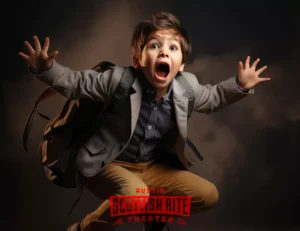There’s a special kind of magic that happens when a child sees live theater for the very first time. It’s in the way their eyes widen when the lights dim. It’s in the gasp they let out when a character appears from the wings. And it’s in the way they can’t stop talking about it afterward, replaying every scene and repeating their favorite lines. That first curtain call isn’t just about entertainment—it’s a moment of awakening.
For many children, their first theater experience is a full sensory event. The sights, sounds, costumes, and movement grab their attention in a way that nothing else does. Unlike television or movies, theater happens right in front of them—real people, real voices, real emotions. That immediacy creates a powerful connection. It feels like the story is unfolding just for them.
Emotionally, this experience opens doors. Kids may laugh loudly, feel empathy for a character’s struggle, or even shed a tear—all within the safe, shared space of a theater. This emotional rollercoaster, while joyful and intense, also teaches children that it’s okay to feel deeply, and that stories are a way to explore those feelings.
There’s also a cognitive shift. As kids follow the plot, they’re building comprehension skills, predicting outcomes, and interpreting meaning. They’re learning how to connect ideas, how to stay engaged, and how to follow a narrative arc from beginning to end. That’s not just useful for reading or school—it’s foundational for how they’ll interpret the world.
Socially, the first theater experience can be transformative. Kids watch the audience react together—laughing, gasping, clapping. They realize that stories are communal, and that they’re part of something bigger. Some may be inspired to try theater themselves, while others may develop a lifelong appreciation for the arts. Either way, that first curtain call stays with them.
Theater also plants seeds of curiosity. After the show, many kids ask, “How did they do that?” They wonder about the sets, the costumes, the special effects. This leads to exploration: reading more, drawing characters, building sets at home, or even writing their own stories.
For parents and caregivers, witnessing this moment is just as powerful. It’s a window into how children process joy, wonder, and surprise. It’s a chance to bond over a shared experience and open conversations about emotions, choices, and creativity.
If you’ve never taken your child to a live play, now’s the time. Choose a show that’s age-appropriate and filled with energy. Prepare them with a few details but leave room for surprise. Let them dress up if they want. Make the day special.
Because that first theater experience isn’t just another activity—it’s a memory that lasts. It’s a moment when the world becomes a little more colorful, a little more dramatic, and a whole lot more magical.
And for many kids, it’s the first step toward a lifelong love of storytelling, empathy, and imagination. All it takes is one curtain call.




